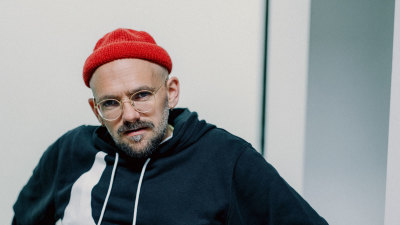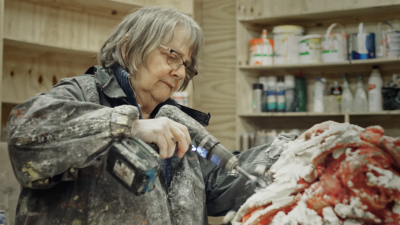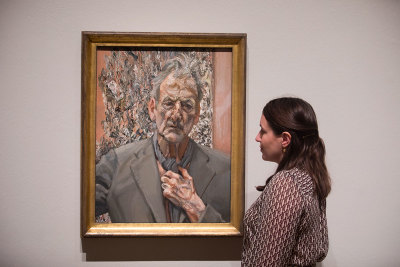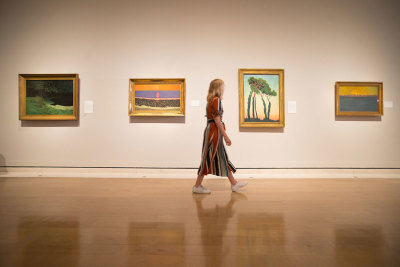My studio life: Phyllida Barlow RA
My studio life: Phyllida Barlow RA
By Tom Jeffreys
Published 4 December 2013
We visited Phyllida Barlow RA in her busy studio as she prepared for an installation at Tate Britain.
-
Phyllida Barlow RA creates tactile, seemingly precarious structures that resonate with emotional intensity and the urgency of their creation. Often recycling her materials, she recontextuatlises detritus and found matter in unexpected ways. Her installations redefine the spaces they inhabit. They are abstract works that seem to allude to representation and some sort of contingency purpose.
We caught up with the artist in her studio as she prepared for a major installation.
-

Welcome to Bermondsey
“I’ve been in this space in Bermondsey for two years. I still have my studio at home in Finsbury Park…”
© Eamonn McCabe
-

Studio 2
“…but I need this for larger-scale works.”
© Eamonn McCabe
-

Coffee?
“This is a very busy period for us, as we’re in the middle of working on the Duveen commission for Tate Britain.”
© Eamonn McCabe
-

Scaling up
“I started using assistants for the very large works in the early 1990s.”
© Eamonn McCabe
-

Working as a team
“It’s always odd being the artist with assistants, because it looks like you’re not doing anything!”
© Eamonn McCabe
-

Opportunities knocked
“These are very skilled practitioners, but there just aren’t the opportunities around now for artists. If you’re an artist, you don’t necessarily want to be making somebody else’s work…”
© Eamonn McCabe
-

Stability
“… but at least this provides them with some stability.”
© Eamonn McCabe
-

"An industrial scale"
“In my home studio, I use very simple and limited technology – simple hand drills and the like. This is almost working on an industrial scale.”
© Eamonn McCabe
-

A performative process
“I don’t know in advance how any particular project will work out. It can’t just be designed by me for somebody else to execute. So it all happens here in the space – the process is sort of performative in that way.”
© Eamonn McCabe
-

"Space is something to be explored"
“I enjoy the idea of reaching into the space of the space, beyond the human scale, exploring overhead or underfoot – my work is often parasitic or antagonistic to the building. I see each space as something to be explored, rather than just a place to put something.”
© Eamonn McCabe
-

The importance of tradition
“I don’t know any art that isn’t traditional in some ways. The minute you’ve decided it’s art, you’re immediately involved in the tradition of being looked at and being seen.”
© Eamonn McCabe
-

A surprise visit
“On which note, here are my daughter and granddaughter – just in time for lunch.”
© Eamonn McCabe















